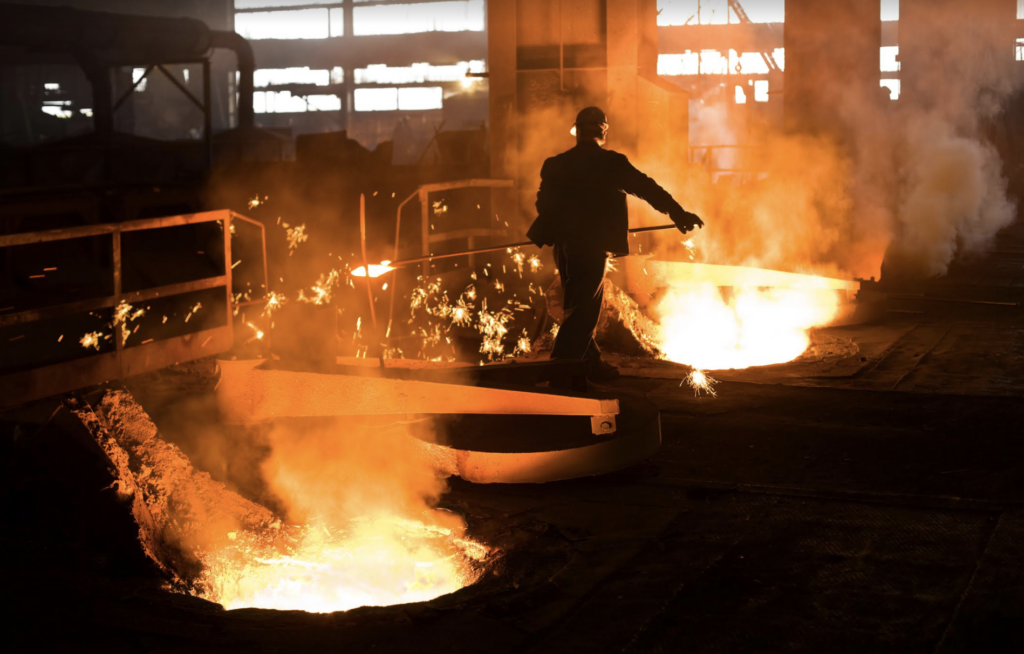Renal cell carcinoma is the most common type of kidney cancer, making up about 90 percent of all kidney cancer cases. There are several different subtypes of renal cell carcinoma. These are important to diagnose to decide the best treatment path for individual cancer. These subtypes include clear cell renal cell carcinoma, papillary renal cell carcinoma, and chromophobe renal cell carcinoma. The rarer forms of kidney cancer can often be more difficult to attribute to workplace exposures.

There are several risk factors that can increase one’s chances of getting kidney cancer, including workplace exposures to toxins. Other risk factors for kidney cancer include significant smoking history, high blood pressure and obesity.
Kidney Cancer and Diesel Exposures
Many studies have suggested that exposure to certain substances in the workplace increases one’s risk of kidney cancer. Some of these substances include diesel fuel, cadmium, asbestos, benzene, and organic solvents like trichloroethylene.
Long-term exposures to gasoline and diesel exhaust have been proven to increase the risk of kidney cancer. Exhaust exposure can be particularly high for workers who spend their days around vehicles and gas-powered machines, with exposure being even greater when there is no proper ventilation of the workplace.
Other Toxins that Cause Kidney Cancer
Cadmium is a component of diesel fuel, gasoline, and lubricating oils often found in industrial workplaces. Cadmium is a silver-white metal typically emitted when coal and oil are burned. It is a Group 1 carcinogen per the International Agency for Research on Cancer. Coke ovens emit cadmium. Many studies have thus found that workers at steel mills utilizing coke ovens are at an elevated risk of kidney cancer.

Benzene, another Group 1 carcinogen, is a widely used industrial chemical. It is (or was once) used as a base ingredient in solvents, degreasers, and lubricants. Benzene is also found in diesel fuel. In a 2006 study analyzing kidney cancer and industrial solvents, the National Center for Biotechnology Information found workers with a history of benzene exposures were at a significantly elevated risk for kidney cancer. These exposures can occur via skin contact and inhalation of industrial solvents.
Asbestos exposures can also lead to kidney cancer. Asbestos can be found in insulation, cement, and paint. Other materials can also contain asbestos. It attacks the membrane surrounding the kidney. Therefore, it allows some forms of kidney cancer to spread throughout the abdomen. Because of this, asbestos can be considered a known contributor to kidney cancer.
Trichloroethylene (TCE) is another trigger of kidney cancer. TCE is an organic chemical used in industrial workplaces to degrease metal parts. It is also used to make other chemicals. In workplaces where TCE is used, the risk of kidney cancer is increased. Locomotive machinists, diesel mechanics, and railroad car department employees are at elevated risk. This is due to their long-term exposures to TCE.
Silica exposures, often in combination with one of the other toxins listed above, have also been connected to an elevated risk of kidney cancer. In addition, Fiberglass, mineral wool, and brick dust, while inhaled, have been shown to lead to kidney damage. This, in turn, elevates the risk for kidney cancer.
As indicated above, Diesel Injury Law will perform a thorough intake of your past exposures. They determine on a case-by-case basis which exposures could have contributed to the kidney cancer.
Importance of Kidney Cancer Screenings
Kidney cancer rarely causes symptoms in its early stages. Currently, there are no routine tests to diagnose kidney cancer before symptoms occur. Kidney cancer can start to show signs through blood in your urine and pain in your back. Pain that doesn’t go away, loss of appetite, and unexplained weight loss are also signs. Fatigue and intermittent fever can also indicate development.
Tests to diagnose kidney cancer include blood and urine tests, imaging tests (CT scans and MRIs), and biopsies of kidney tissue. Once diagnosed, radiation therapy, surgery, and alternative nonsurgical treatments can be used to treat cancer and prevent it from spreading to other parts of the body. Success rates of treatment depend on the specific stage of cancer at diagnosis, as well as the patient’s other contributing risk factors.
Contact a Diesel Injury Lawyer
If you believe you are suffering from kidney cancer due to diesel exhaust or other toxic exposures, our team at Diesel Injury Law can fight on your behalf. Contact us today to get started.

